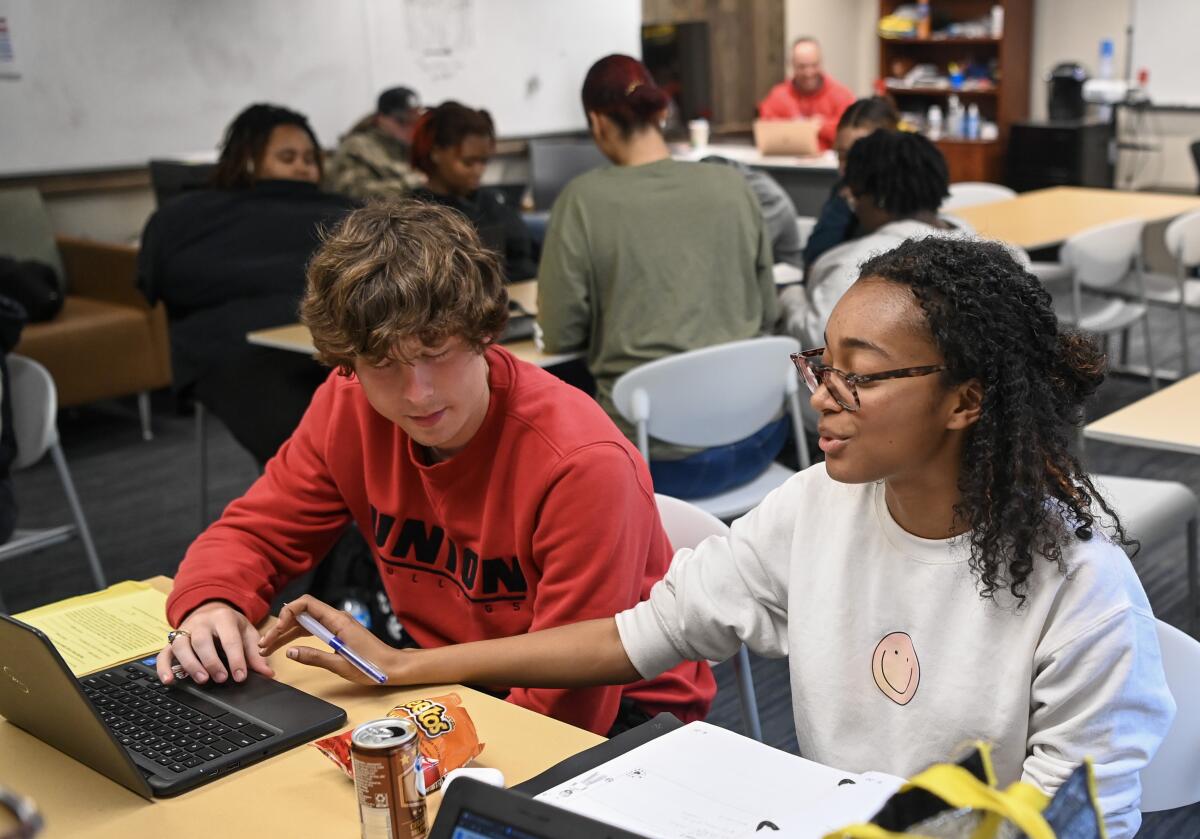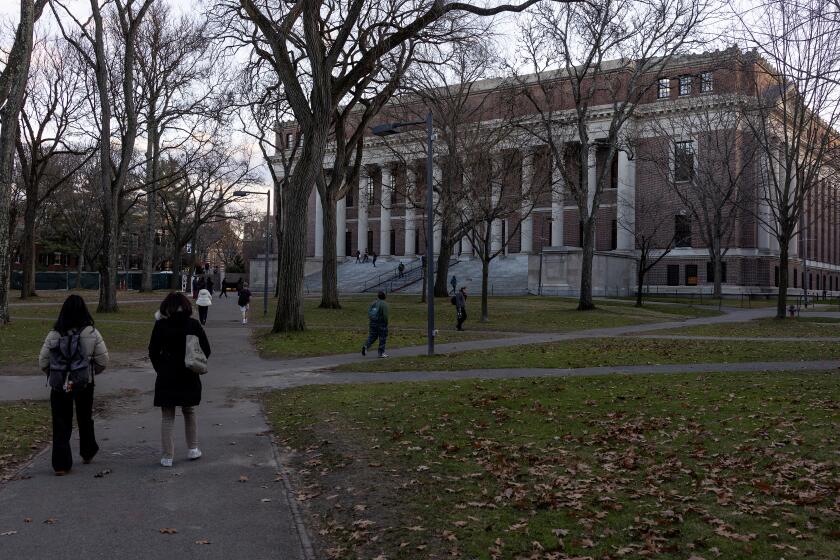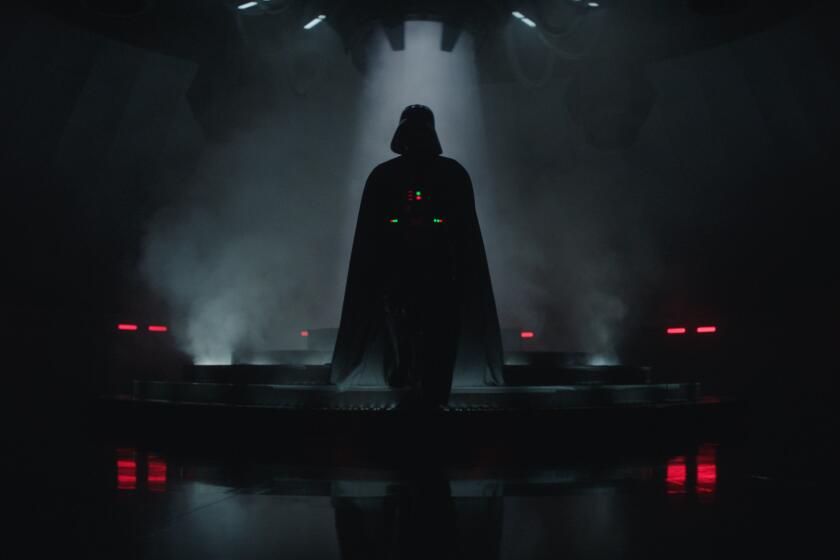ChatGPT hasn’t fueled cheating in schools. Do teens know something adults don’t?

- Share via
The introduction of ChatGPT did not lead to more cheating in high school. This is according to the students themselves.
For 15 years, Stanford University researchers have used anonymous surveys and focus groups to create an environment for honest answers from students about their experiences in the classroom. Those studies include questions about whether the students cheat on assignments.
Opinion Columnist
LZ Granderson
LZ Granderson writes about culture, politics, sports and navigating life in America.
The bad news from the latest research is that some 70% said they’d cheated within the last month. The good news: It’s been like that for years. In other words, the arrival of ChatGPT a year ago did not increase incidents of cheating.
You have to take the victories where you can. Today’s students could be using AI to write their papers, but mostly they don’t seem to be.
Still, the possibility haunts educators. They fear an arms race between cheating and detection, along the lines of Major League Baseball’s struggle to stop players from doping. Cheating persists in baseball because the benefits outweigh the downsides. Perhaps the calculus is different for AI and homework. But will that change as ChatGPT and other systems become easier to use and harder to detect?
Weak testimony from university presidents is just the latest evidence of the decline of higher education.
I’m sure some Silicon Valley wunderkind is already working on a piece of brilliant technology that is going to take the pain out of writing, which for a lot of people would be welcome news. And even though I’m a journalist who takes joy in writing, I’m not a purist; I would celebrate any tool that helps people express themselves. But to educate their students, teachers need to know whether a paper was written with AI.
As an adjunct professor this semester, I asked my students whether any used ChatGPT on assignments.
They all denied it. We moved on. Or at least they did.
Granderson: What’s with all these rules about hair? Let young men enjoy it before they’re balding
Biology has imposed enough limitations on men’s hairstyles. We don’t need racist and sexist policies as well.
That was when I started wondering: How are teachers supposed to know whether AI is being deployed? Given the speed at which technology is moving, none of us should trust our gut to recognize a robot’s writing. Teachers will be second-guessing their second guesses.
As artificial intelligence creeps into the classroom, the issue to keep in mind is intent. Are students using AI to express their thoughts more clearly, or to avoid thinking? The foundation of teaching people to write is evangelizing the process itself — a process of thinking, a process that can’t be outsourced. When teachers emphasize the final product, they are encouraging cheating, because AI will soon be able to crank out pretty decent research papers.
As long as lawmakers are trying to oppress LGBTQ+ people, representation matters. Someday maybe we can afford to just say, ‘who cares?’
MLB learned this when it placed a premium on home runs at the cost of integrity.
A writing class should be different from a professional sport. What counts in learning to write is not primarily the final product. It’s about creativity, critique and revision, distillation of ideas. Those skills are just as essential when AI gets involved — maybe even more so.
So maybe ChatGPT and its ilk will enter the English classroom much as calculators became a staple in higher-level math classes. Spell check and grammar check were the gateways, and we’ve embraced their help for decades without losing the ability to express ourselves. We used to have to grab a dictionary to spell “coincidence.” Now we get in the ballpark, and the machine gets the spelling right, so we can carry on with whatever we were trying to convey.
I’m not anti-technology. I support the use of ChatGPT. It has helped me find things to eat on the Mediterranean diet besides olives, because I’m sick of olives.
However, I am concerned about the abuse of ChatGPT leading to creative atrophy.
It’s been my experience that the No. 1 reason students hate to write is that they don’t want to appear stupid. Plugging a prompt into ChatGPT and handing in the result allows students to skip that anxiety. But it doesn’t allow them to learn from it. Often, anxiety is the energy that pushes work over the finish line. It’s the drive that leads to something being better than a machine could have written. And there’s tremendous value in the resiliency one builds from the process of writing.
I no longer fear so much that students will use ChatGPT to cheat. There doesn’t seem to be an epidemic of abuse yet — probably because students know they’d only be cheating themselves.
More to Read
A cure for the common opinion
Get thought-provoking perspectives with our weekly newsletter.
You may occasionally receive promotional content from the Los Angeles Times.














